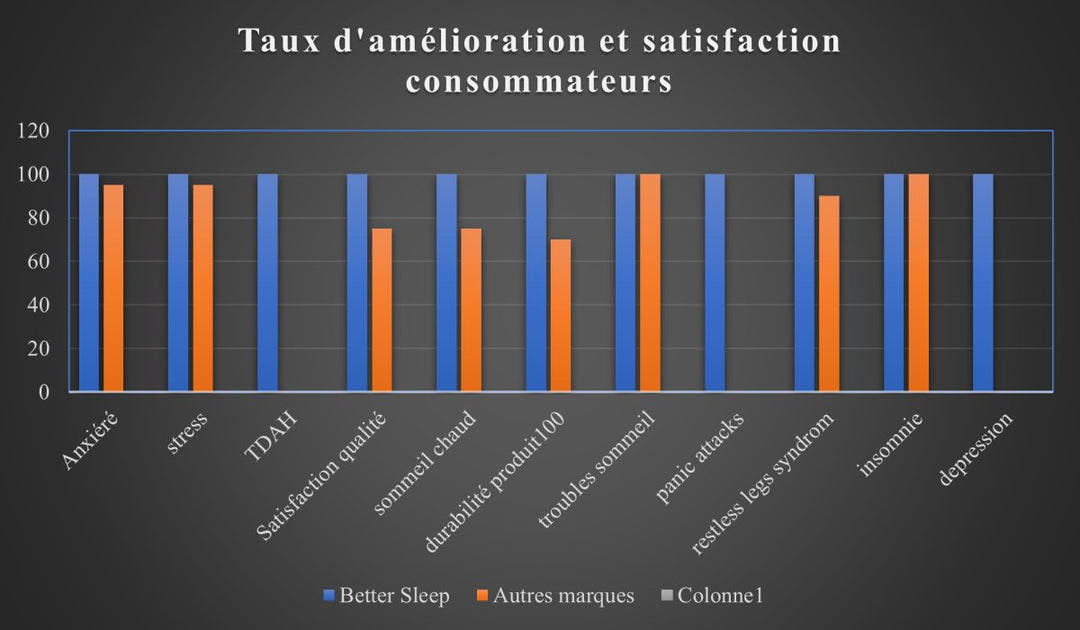Why is sleep so important ?
Why is sleep so important ?
The Importance Of Sleep: Understanding The Vital Role It Plays In Our Lives
Why is sleep so important ? Sleep is an essential aspect of our lives, and its significance cannot be overstated. It is during this seemingly passive state that our bodies and minds actively recharge, repair, and rejuvenate. Sleep plays a crucial role in maintaining optimal physical health, mental well-being, cognitive function, and emotional balance. Physiologically, sleep serves as a restorative process that allows the body to heal and regenerate.
It aids in the growth and repair of tissues, promotes muscle development, strengthens the immune system, and regulates hormone production. Moreover, quality sleep helps maintain a healthy weight by balancing hunger hormones and reducing cravings for unhealthy foods.
Mentally, sleep is vital for cognitive processes such as memory consolidation, problem-solving abilities, creativity enhancement, and learning retention. It provides an opportunity for the brain to organize information gathered throughout the day while preparing us for new challenges ahead.
Emotionally speaking, adequate sleep contributes to emotional stability by regulating mood swings and reducing stress levels. Lack of sleep can lead to irritability, anxiety disorders or depression symptoms. In conclusion, understanding the critical role that sleep plays in our lives is paramount if we aim to prioritize our overall well-being.
Exploring The Benefits Of Quality Sleep For Mental Health And Well-Being
In today's fast-paced world, sleep often takes a backseat to our demanding schedules and the constant influx of digital distractions. However, research consistently highlights the crucial role that quality sleep plays in maintaining our mental health and overall well-being. One significant benefit of quality sleep is its impact on cognitive function. When we obtain sufficient restorative sleep, our brain processes information more effectively, improving our memory retention and learning abilities.
Moreover, it enhances creativity and problem-solving skills, allowing us to approach challenges with a fresh perspective. Furthermore, adequate sleep has a profound impact on emotional well-being. Lack of quality sleep can lead to increased irritability, mood swings, and heightened anxiety levels. On the other hand, getting enough rest helps regulate emotions by fostering resilience and better stress management. Quality sleep also promotes emotional stability by reducing the risk of developing mental health disorders such as depression and bipolar disorder.
Additionally, proper sleep patterns are closely linked to physical health. A good night's rest supports immune system function while reducing inflammation in the body—a key factor in preventing chronic diseases like diabetes or cardiovascular issues. To prioritize mental health and overall well-being effectively, it is imperative that we acknowledge the undeniable benefits that quality sleep offers.
Enhancing Physical Health: How A Good Night's Sleep Boosts Your Body's Functioning
Adequate sleep is not just about feeling refreshed and alert the next day; it plays a crucial role in maintaining and enhancing our physical health. During sleep, our body undergoes essential restorative processes that optimize its functioning. Firstly, sleep acts as a powerful regulator of our immune system. Research suggests that individuals who consistently get enough sleep are less likely to fall ill or develop chronic diseases.This is because while we sleep, our immune system releases proteins called cytokines that help fight infection and inflammation.
Moreover, quality sleep supports proper hormone regulation. Lack of sleep disturbs the balance of hormones responsible for appetite control and metabolism, leading to an increased risk of obesity and type 2 diabetes. Sufficient restful sleep promotes the production of growth hormones that aid in tissue repair, muscle growth, and overall physical development.
Furthermore, deep slumber plays a crucial role in cardiovascular health. During this time, blood pressure decreases, allowing the heart to rest and recover from daily stressors. Consistently obtaining adequate sleep has been linked to reduced risks of heart disease, stroke, and other cardiovascular conditions. In conclusion, prioritizing sufficient sleep is essential for enhancing physical health.
Healthy Sleep Habits: Creating A Restful Routine For Optimal Sleep Quality
Creating a restful routine for optimal sleep quality is crucial in understanding why sleep is important. Establishing healthy sleep habits can significantly improve our overall well-being and productivity levels. Firstly, it is essential to maintain a consistent sleep schedule. Going to bed and waking up at the same time every day helps regulate our body's internal clock, promoting better sleep quality.
This consistency allows us to synchronize our natural circadian rhythm, making it easier to fall asleep and wake up refreshed. Additionally, creating a relaxing bedtime routine can signal the body that it's time to unwind and prepare for sleep. Engaging in calming activities such as reading a book, taking a warm bath, or practicing mindfulness exercises can help reduce stress levels and promote relaxation.
Limiting exposure to electronic devices before bed is also vital for quality sleep. The blue light emitted by smartphones, tablets, and computers suppresses melatonin production – the hormone responsible for regulating our sleep-wake cycle. By avoiding these devices at least an hour before bedtime, we enhance the body's ability to wind down naturally.
Lastly, ensuring a comfortable sleeping environment is paramount. A cool temperature (around 18-20°C) combined with minimal noise and darkness contributes to better sleep quality.
Strengthening Your Immune System Through Adequate Sleep: Unveiling The Connection
One of the significant benefits of getting adequate sleep is its positive impact on our immune system. Research has shown a strong connection between sleep and immune function, with sleep playing a crucial role in strengthening our body's defense mechanism. During sleep, our bodies engage in various essential processes that support immune function.
One such process is the production of cytokines, proteins that regulate inflammation and help fight infections. Lack of sleep can lead to decreased production of these vital proteins, leaving us more susceptible to illnesses. Adequate sleep also enhances the effectiveness of certain cells in our immune system, such as T cells and natural killer cells. These cells play a pivotal role in identifying and destroying harmful pathogens that can cause diseases.
Furthermore, deep sleep promotes the production of antibodies, proteins that recognize and neutralize specific harmful substances like viruses or bacteria. It also assists in memory formation within the immune system, allowing it to respond more efficiently when faced with future infections.
Fueling Energy Levels Naturally: How Proper Sleep Supports Overall Vitality
In our fast-paced, modern society, it is easy to overlook the crucial role that sleep plays in sustaining our energy levels and overall vitality. Sleep is not merely a time of rest; it is a fundamental process that allows our bodies to rejuvenate and recharge. When we prioritize quality sleep, we are naturally fueling our energy levels. During sleep, our bodies undergo essential processes that support physical and mental well-being.
One of these processes is the restoration of energy resources. Just as a car needs fuel to run efficiently, our bodies require sufficient sleep to replenish vital energy stores. When we experience deep, uninterrupted sleep, our brain cells repair and regenerate themselves. This restoration process enhances cognitive function, enabling us to think clearly and make sound decisions throughout the day. Moreover, proper sleep promotes hormonal balance by regulating appetite-controlling hormones like leptin and ghrelin. As a result, we are less likely to experience fatigue-induced cravings or overeating.
The Link Between Quality Sleep And Productivity: Unlocking Your Full Potential
Sleep is not just a mere state of rest; it plays a crucial role in enhancing our productivity levels and unlocking our full potential. Numerous studies have highlighted the direct correlation between the quality of sleep we get and our ability to perform at our best during waking hours.
When we experience deep, uninterrupted sleep, our brain undergoes essential processes that consolidate memories, enhance cognitive function, and promote problem-solving abilities. This rejuvenation period allows us to wake up refreshed, alert, and ready to tackle the challenges of the day ahead.
Conversely, a lack of sufficient or poor-quality sleep can lead to decreased focus, reduced creativity, and impaired decision-making skills. It hampers our ability to concentrate on tasks effectively and diminishes our overall productivity levels. Moreover, chronic sleep deprivation has been linked to long-term health problems such as cardiovascular disease and mental health disorders.
To unlock our full potential and maximize productivity, it is crucial to prioritize getting enough high-quality sleep each night. By establishing a consistent sleep routine, creating a conducive sleeping environment free from distractions, and practicing relaxation techniques before bed, we can reap the benefits of improved focus, enhanced creativity, increased efficiency in problem-solving tasks – ultimately allowing us to excel in both professional and personal endeavors.
Sharpening Focus And Attention: How Sufficient Rest Improves Cognitive Performance
In our fast-paced society, it is easy to overlook the significance of a good night's sleep. However, ample evidence suggests that sufficient rest plays a crucial role in enhancing cognitive performance, particularly in terms of focus and attention. When we sleep, our brains undergo essential processes that consolidate memories, process information, and repair neural connections. One key aspect of sleep is its influence on attention span.
Adequate sleep allows us to maintain sustained attention for extended periods. Research has shown that individuals who consistently get enough sleep exhibit improved concentration levels compared to those who are sleep-deprived. Moreover, studies have demonstrated that well-rested individuals are better able to filter out distractions and maintain their focus on tasks at hand. Sleep also plays a critical role in memory consolidation—an essential process for learning and retaining information.
During deep sleep stages, the brain actively organizes and strengthens newly acquired knowledge, leading to improved recall abilities and enhanced problem-solving skills. Furthermore, lack of sleep negatively impacts cognitive functions such as decision-making and problem-solving abilities. Sleep deprivation impairs reasoning skills and decreases creativity levels while hindering one's ability to think critically. In conclusion, sufficient rest is vital for sharpening focus and attention.
Managing Anxiety Through Healthy Sleeping Patterns: Promoting Emotional Balance
Anxiety has become a prevalent issue in today's fast-paced and demanding world. Fortunately, one effective way to alleviate anxiety and promote emotional balance is through healthy sleeping patterns. Sleep plays a crucial role in regulating emotions, allowing individuals to better manage stress and anxiety.
Adequate sleep helps restore the body's natural balance, allowing it to recover from daily stressors and recharge for the next day. When we are well-rested, our brains can process emotions more effectively, leading to improved mood regulation and reduced anxiety levels. On the other hand, chronic sleep deprivation disrupts this delicate emotional balance, leaving individuals more vulnerable to heightened anxiety.
Creating a nighttime routine that prioritizes quality sleep can greatly aid in managing anxiety. Establishing regular bedtimes and wake-up times promotes a consistent sleep schedule that allows the body to develop a healthy circadian rhythm. Additionally, implementing relaxation techniques such as deep breathing exercises or mindfulness meditation before bedtime can help calm an overactive mind and reduce anxious thoughts.
By recognizing the vital link between healthy sleeping patterns and emotional well-being, individuals can take proactive steps towards managing their anxiety levels. Prioritizing quality sleep not only supports physical health but also contributes significantly to promoting emotional balance and overall mental well-being.
Conclusion: Prioritizing Sleep As A Pillar Of Overall Well-Being
In conclusion, prioritizing sleep as a pillar of overall well-being is crucial for a multitude of reasons. Sleep is not merely a luxury or an indulgence; it is a fundamental necessity for our bodies and minds to function optimally. Firstly, adequate sleep plays a vital role in maintaining physical health. It allows our immune system to strengthen, reducing the risk of various illnesses.
Sleep also promotes proper growth and development, particularly in children and adolescents. Moreover, it contributes to weight management by regulating appetite hormones and preventing overeating. Furthermore, sleep is essential for cognitive functions such as memory consolidation and learning. During sleep, the brain processes information acquired throughout the day, enhancing our ability to retain knowledge and perform complex tasks efficiently. Lack of sleep has been linked to impaired concentration, decreased productivity, and increased likelihood of accidents or errors.
Additionally, prioritizing sleep positively impacts mental well-being. Sufficient rest helps regulate emotions and reduces the risk of developing mental health disorders such as depression and anxiety. Sleep deprivation often leads to irritability, mood swings, and heightened stress levels. In essence, recognizing the significance of quality sleep in maintaining overall well-being should be at the forefront of our priorities.













Leave a comment